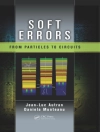The biorefinery, integration of processes and technologies for biomass conversion, demands efficient utilization of all components. Hydrothermal processing is a potential clean technology to convert raw materials such as lignocellulosic and aquatic biomass into bioenergy and high added-value compounds. This book aims to show fundamental concepts and key technological developments that enabled industrial application of hydrothermal processing. The scope of this book is primarily for scientists working in the biorefinery field as well as engineers from industry and potential investors in biofuels. Therefore, the information in this book will provide an overview of this technology applied to lignocellulosic materials and aquatic biomass, and especially new knowledge. Critically, this book brings together experts in the application of hydrothermal processes on lignocellulosic and aquatic biomass.
สารบัญ
Introduction Book.- Effect of Hydrothermal Pretreatment on Lignin and Antioxidant Activity.- Effect of Hydrothermal Processing on Hemicellulose Structure.- Response of Biomass Species to Hydrothermal Pretreatment.- Kinetic Modeling, Operational Conditions and Biorefinery Products from Hemicellulose: Depolymerization and Solubilization during Hydrothermal Processing.- Combined Severity Factor for Predicting Sugar Recovery in Acid Catalyzed Pretreatment Followed by Enzymatic Hydrolysis.- Hydrothermal Pretreatment of Lignocellulosic Biomass for Bioethanol Production.- Hydrothermal Pretreatment: Process Modeling and Economic Assessment within the Framework of Biorefinery Processes.- Bioethanol Production from Pretreated Solids Using Hydrothermal Processing.- Production and Emerging Applications of Bioactive Oligosaccharides from Biomass Hemicelluloses by Hydrothermal Processing.- Production of Hemicellulases, Xylitol and Furan from Hemicellulose Hydrolysates Using Hydrothermal Pretreatment.- Steam Explosion as a Hydrothermal Pretreatment in the Biorefinery Concept.- Adaptation of Severity Factor Model According to the Operating Parameters Variations which occur during Steam Explosion Process.- Hydrothermal Pre-treatment Using Supercritical CO2 in the Biorefinery Context.- Scale-up Hydrothermal Pre-treatment of Sugarcane Bagasse and Straw for Second-Generation Ethanol Production.- Pilot Plant Design and Operation Using a Hydrothermal Pretreatment: Bioenercel Experience.- Techno-economic Aspects in the Evaluation of Biorefineries for Production of Second Generation Bioethanol.- Minimizing Precipitated Lignin Formation and Maximizing Monosugar Concentration by Formic Acid Reinforced Hydrolysis of Hardwood Chips.- Microwave-assisted Hydrothermal Processing of Seaweed Biomass.- Hydrothermal Processes for Extraction of Macroalgae high Value added Compounds.- Hydrothermal Processing of Microalgae.
เกี่ยวกับผู้แต่ง
Dr. Héctor A. Ruiz obtained his Ph.D in Chemical and Biological Engineering from Centre of Biological Engineering at the University of Minho, Portugal in 2011. He then spent 1 year as a postdoctoral researcher at University of Minho (Portugal) and University of Vigo (Spain) under the supervision of Prof. José A. Teixeira and Prof. Juan C. Parajó (2012). He is currently Full Professor in the School of Chemistry at the Autonomous University of Coahuila and founder of the Biorefinery Group in the Food Research Department, Saltillo, Coahuila, Mexico and leader of the pretreatment step in the Cluster of Bioalcohols in the Mexican Centre for Innovation in Bioenergy (Cemie-Bio), Mexico. His research has targeted hydrothermal processing (autohydrolysis) and biorefinery strategies for the production high added-value compounds and bioethanol from lignocellulosic, micro – and macroalgal biomass. Dr. Ruiz has conducted several research stays and technical visits: at the Federal University of Sergipe (Brazil), Brazilian Bioethanol Science and Technology Laboratory (CTBE, Brazil), in the Chemical and Biological Engineering Department at the University of British Columbia (Canada), CIEMAT- Renewable Energy Division, Biofuels Unit (Spain), University of Jaén (Spain), Sadar Swaran Singh National Institute of Bio-Energy (India), Tokyo Institute of Technology (Japan).
He has authored or co-authored several research publications with an H factor of 14 (Google Scholar Citations). Currently, Dr. Ruiz is Editor-in-Chief of Bioethanol Journal (De Gruyter Open, since 2014), Associate Editor of Bio Energy Research Journal (Springer, since 2015) and participates in the Editorial Advisory Board of the Industrial Crops and Products (Elsevier, since 2013) and Biofuel Research Journal. Dr. Ruiz was awarded with the Prize ‘Dr. Carlos Casas Campillo’ of the Mexican Society of Biotechnology and Bioengineering in 2016. This award aims to give recognition and encourage young researchersfor their contribution to the development of biotechnology and bioengineering in Mexico.
Dr. Mette Hedegaard Thomsen, Ph D, Assistant Professor, has worked with utilization of waste products and aquatic biomass for bio-fuels and green chemicals for more than 10 years. Dr. Thomsen has worked closely with European, American, and Middle Eastern industry to develop and scale up biorefinery processes, and has PI experience from several national research and international projects. Dr. Thomsen is author and co-author of more than 60 scientific papers including 38 ISI journal papers, five book chapters, and several conference contributions in areas related mainly to bio-energy and bio-chemicals production. Major contributions in the field of biorefineries: i) Application of amylolytic lactic acid bacteria in production of bio-polymers, ii) Part of team that developed acidification process for grass juice as substrate to produce l-lysine, iii) Part of team that developed demonstration scale hydrothermal treatment of wheat straw, iv) Chemical characterization and development of conversion processes for many different biomasses, v) Progress in biomass to ethanol fermentation technology, and vi) Isolation and application of natural antibiotics.
Dr. Heather L. Trajano is an Assistant Professor in Chemical and Biological Engineering at the University of British Columbia in Vancouver, Canada. She obtained her Ph.D. in Chemical Engineering at the University of California Riverside. Dr. Trajano’s focus is to explore and harness fundamental knowledge of biomass fractionation and conversion for maximum economic and environmental benefit. Specific research interests include i) Fundamentals of biomass deconstruction to separate carbohydrates from lignin, ii) Recovery and purification of extractives and iii) Heterogeneous catalysis for chemical production. Dr. Trajano searches for biorefining opportunities that complement existing forestry operations by utilizing waste streams and by-products in collaboration with leading Canadian forestry companies. Dr. Trajano has published numerous articles on biomass pretreatment and enzymatic hydrolysis in leading biorefining journals including: Biotechnology and Bioengineering, Biotechnology for Biofuels, Bioresource Technology, and Biofuels, Bioproducts and Biorefining.












